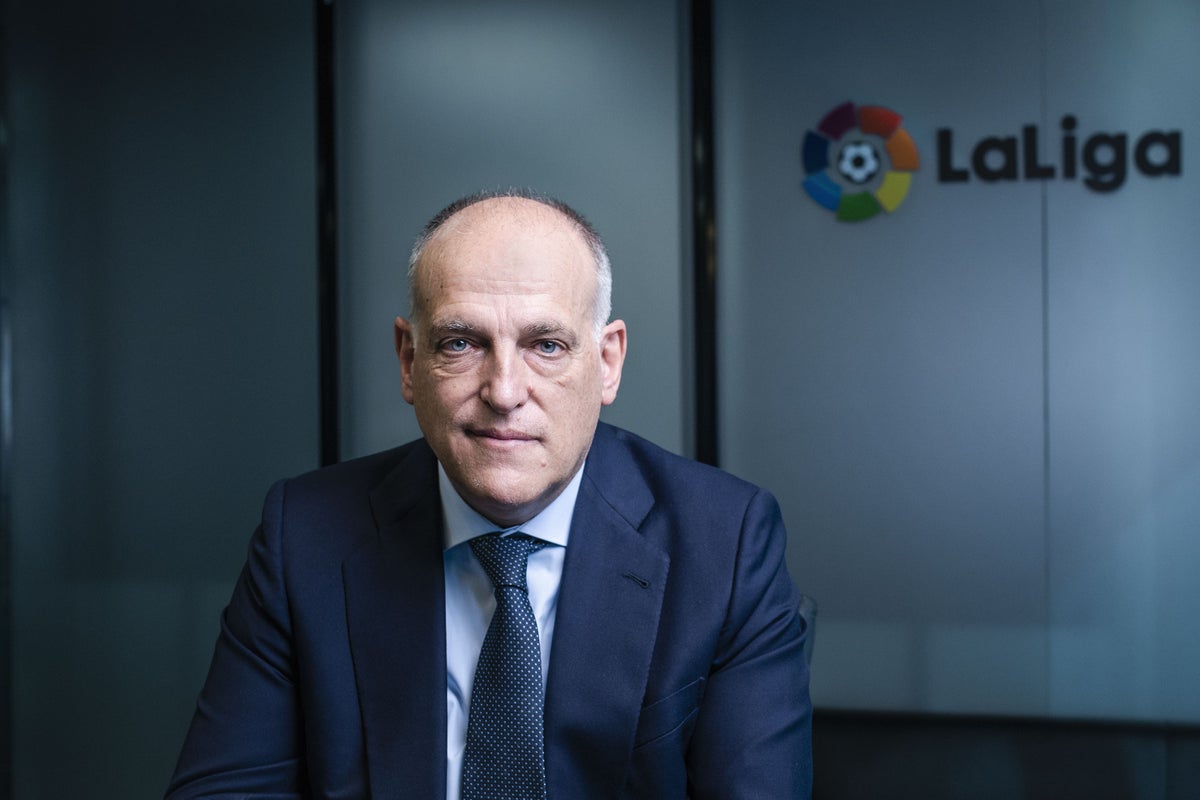
The Premier League’s reputation and credibility is at stake in how it handles the Manchester City investigation, LaLiga president Javier Tebas has said.
The league charged City last month with more than 100 alleged breaches of its financial rules at the end of a four-year investigation.
Tebas is a long-term critic of City. He believes along with Paris St Germain that they have contributed to a distortion of the football ecosystem in Europe.
Things like this have a big impact on sponsors, because reputation is paramount.— Javier Tebas
He said how the Premier League proceeded in this case would now be critical to the competition’s future.
“This is linked to the reputation and credibility of the Premier League,” he said at a breakout briefing at the Financial Times Business of Football Summit in London on Thursday.
“Things like this have a big impact on sponsors, because reputation is paramount.
“I was at Soccer Ex in Manchester in 2017. When we had that event, I criticised PSG and Man City. I said City should be sanctioned by UEFA.
“Then I had a call from (City chief executive) Ferran Soriano who was angry with me and asked me to come to City’s premises.
“PSG and Man City were sanctioned by UEFA. Man City were banned from European competition. It was the Court of Arbitration for Sport that overruled and lifted the ban.
“That dates back to 2017 and we have still not moved on. The Premier League is the best competition in the world but it is important to manage its reputation in the economic sphere.
“If this had been dealt with earlier the Premier League would have had more credibility.”
City said on the day the charges were announced that they welcomed the opportunity for an independent panel to impartially consider the “comprehensive body of irrefutable evidence” supporting their position.
Premier League chief executive Richard Masters defended the length of the investigation when he spoke at the FT Summit.
“The investigation was four years. People argue it’s a long time, and they’re clearly right, it’s a long time,” he said.
“Obviously I can’t say anything about the case itself. What people would want is a regulatory system that was very clear, open and transparent and that when rules are breached, immediate remedial action was taken.
“But you also have the law of the land around that – people can appeal, there are all sorts of things. Of course you want a swift, efficient regulatory system. It doesn’t always work that way. It doesn’t mean to say that the regulation isn’t working.”
Masters also said Chelsea’s approach to transfer spending will need to be judged over a period of time.
The Blues blitzed their way through the January window, spending around £323million on new players including almost £90m on forward Mykhailo Mudryk.
Their total spend was almost £100m more than Europe’s other four big leagues combined.
Masters was asked whether that spending indicated the financial guardrails had come off.
“I’m not here to defend (Chelsea). The new owners of the club of less than a year have had two transfer windows. You need to judge the football club after three or four years,” he said.
“They would argue probably, I would suggest, that they have a different transfer policy to the previous regime. The players have longer contracts, lower wages. And obviously within our rules it’s a test over a 12-month period.
“The question is whether they’re going to sell some of their players in the next window? I don’t know the answer to that question, I’m also not going to defend them, but you have to judge these things over a period of time.”







